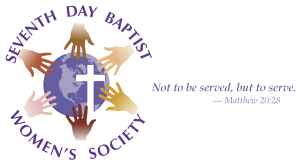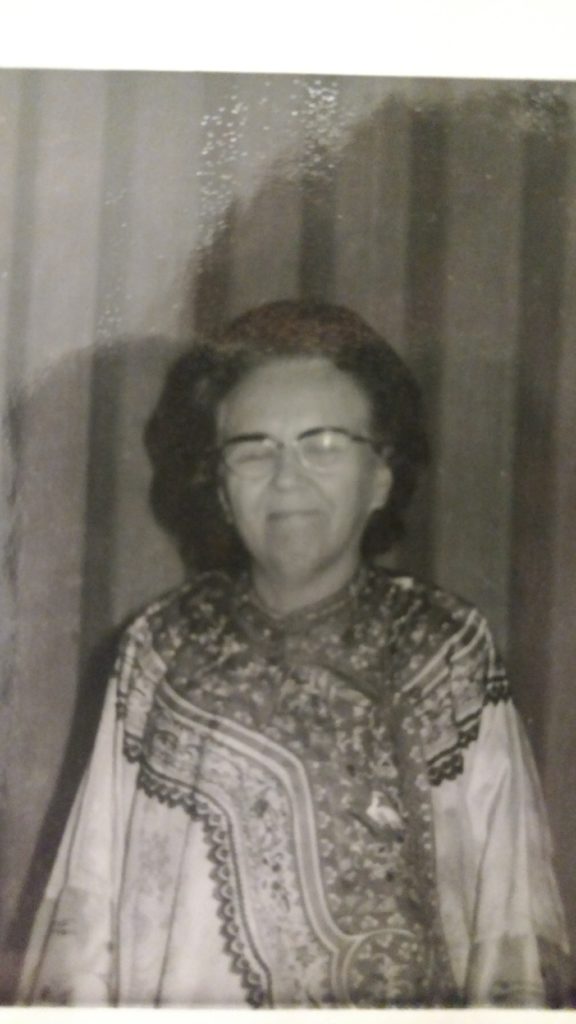Sarah Becker was the selection for the 1974 Robe of Achievement. Sarah began her life in a small farming community in South Russia. Her family was Mennonite and was greatly persecuted during WWI and the Russian Revolution. This persecution drove them closer to God and gave them a passion for studying the Scripture and it is through this study that they were convicted of the Sabbath. Their Sabbath conviction separated them from their relatives and friends and Sarah’s family were lone Sabbath keepers for 16 years.
In 1923 Sarah’s family moved to the US fleeing persecution. During the next 10 years they learned English and how to live in this New World living in several different places in the Midwest. There they learned of SDB’s through the American Sabbath Tract Society and in 1935 they moved to Southern California where they became members of the Riverside SDB church in 1936.
Sarah trained as a nurse and received her first call to be a missionary in 1947. She was called to Liu-Ho, China and worked with Dr. Esther Pan and Dr. George Thorngate. She studied the language for 2 months and then went into active duty in the hospital there as a supervisor. She conducted immunization campaigns, diet clinics, and well-baby clinics for citizens of Liu-Ho. After 14 months in Liu-Ho Sarah was forced to leave because Communist Nationalist warfare had made it very dangerous for Americans.
Back in the US Sarah took more training at Hartford Seminary School of Missions in CT and then taught at Bishop Johnson Nurses Training School in L.A. In L.A. she was ordained in the Los Angeles church as a deaconess and served in many ways.
Sarah studied for a graduate degree from Columbia University in preparation for her second mission to the Makapwa Mission in Africa in 1959. She assisted in the work of the clinic there and with the maternity work. In 1961 she served as first vice-president of the African Conference and the the president in 1962. She continued to work in the clinic there and also took in a small boy when his mother died. She worked as much as she could with the churches there, maintained her home where they grew their own food, and continued service day and night at the hospital. She would get calls in the night to come to the hospital and she would go down a rugged footpath by flashlight to help those who needed her. She stayed during and after her furlough dedicated to working at the mission.
In 1964 she returned to the US to find employment, serve her home church and help with the care of her aging parents.
In 1970 Sarah received the call to go to Malawi and though she found it difficult to leave her ill and elderly parents she felt the call so strongly she went back to Africa. In Malawi she was the medical supervisor and supervised maternity, well baby clinics, outpatient clinics, a branch dispensary and Thembe, taught sanitation and health and even drove the ambulance across treacherous roads to take patients to bigger hospitals.

